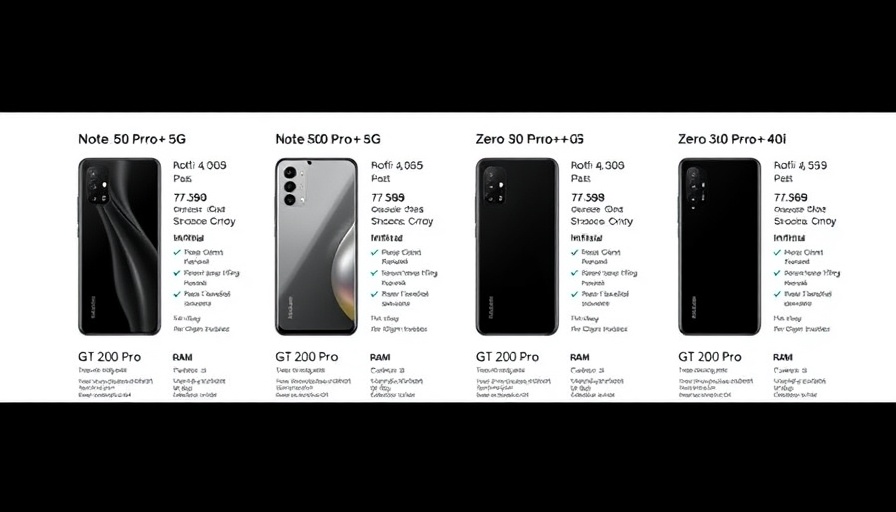
The Rise of Infinix Phones in Nigeria
As the smartphone market in Nigeria continues to evolve, Infinix has emerged as a key player, offering devices that balance performance, camera quality, and affordability. If you are a tech entrepreneur or investor exploring the latest innovations in mobile technology, it's crucial to stay updated on the best options available in the market. Infinix's latest offerings for 2025 solidify its reputation as a brand that caters to various needs, whether for business or leisure activities.
Top Infinix Models to Consider in 2025
Infinix's diverse lineup includes several noteworthy series, each designed to meet specific user preferences. For example, the Hot Series features reliable options like the Infinix Hot 50 Pro+, perfect for everyday tasks without exceeding budgets. On the other hand, those needing better performance should consider the Note Series, especially the Infinix Note 40 Pro and its enhanced capabilities.
Innovation Meets Affordability
With models such as the Infinix Zero 30 5G, designed with content creators in mind, it’s evident that innovation is at the heart of Infinix's strategy. The Zero series is renowned for its superior camera setups, making it ideal for professionals who rely on high-quality visual presentations. Similarly, gaming enthusiasts will find the GT Series exciting, with devices like the Infinix GT 20 Pro providing esports-level performance at a competitive price.
Impact of Infinix Phones on African Tech Trends
As African startups increasingly adopt AI, fintech, and blockchain technology, devices from brands like Infinix aid in bridging the digital divide. These smartphones empower local entrepreneurs to leverage technology more effectively. Understanding the specifications and features of phones like these can guide investors and business leaders in making informed decisions aligned with Africa's digital transformation and future of work trends.
Final Thoughts
In conclusion, navigating the dynamic landscape of smartphone options in Nigeria requires keen insights. As Infinix continues to innovate while ensuring affordability, its phones represent a great choice for anyone looking to enhance their productivity in an increasingly digital world.
Stay ahead of the curve by exploring the latest in mobile technology and how it can empower your work and business in Africa.
 Add Row
Add Row  Add
Add 


Write A Comment